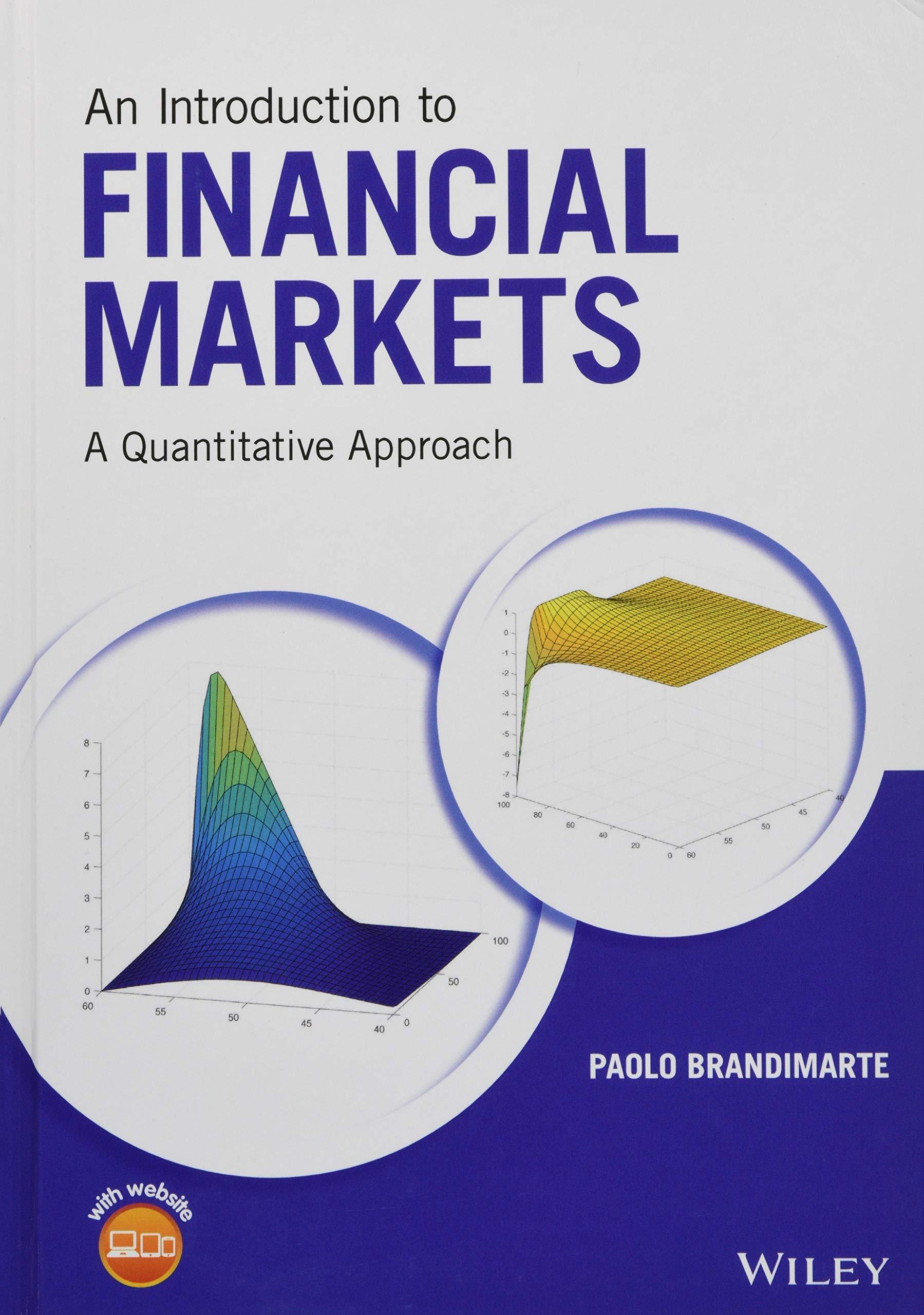
Consider a stock with current price 10 which over the next year can move up to 12 with probability 0.6 and down to 8 with probability 0.4. The annual risk-free rate is 2%. Required a) What are the Arrow-Debreu prices (T11, T2) consistent with no arbitrage? What are the risk-neutral probabilities, qu and qa? Now consider a put and call options on this asset. The payoff for the put option is given by max(K S,0) and the payoff for the call option is max(S K,0) where S is the stock price and K is the exercise price of the option. Required b) What is the theoretical, no-arbitrage, price of a put option with an exercise price of 10? What is the price of a call option with an exercise price of 10? c) What portfolio of stock and risk-free asset replicates the put option? If the market price of this option is 0.90, is there an arbitrage opportunity? If so, how would you exploit it? d) What is the expected payoff of a call option with K = 10 calculated using the real probabilities? Is this larger or smaller than with the risk-neutral probabilities? Explain why it is larger/smaller. e) What is the appropriate rate to discount the expected payoff from part d) at to give the same price as calculated in part b)? Did you expect this? Explain the relationship between this discount rate and the risk-free rate. f) Is there a similar relationship for put options on this stock? Repeat the analysis for parts d) and e) for the put option. Comment on your results. Consider a stock with current price 10 which over the next year can move up to 12 with probability 0.6 and down to 8 with probability 0.4. The annual risk-free rate is 2%. Required a) What are the Arrow-Debreu prices (T11, T2) consistent with no arbitrage? What are the risk-neutral probabilities, qu and qa? Now consider a put and call options on this asset. The payoff for the put option is given by max(K S,0) and the payoff for the call option is max(S K,0) where S is the stock price and K is the exercise price of the option. Required b) What is the theoretical, no-arbitrage, price of a put option with an exercise price of 10? What is the price of a call option with an exercise price of 10? c) What portfolio of stock and risk-free asset replicates the put option? If the market price of this option is 0.90, is there an arbitrage opportunity? If so, how would you exploit it? d) What is the expected payoff of a call option with K = 10 calculated using the real probabilities? Is this larger or smaller than with the risk-neutral probabilities? Explain why it is larger/smaller. e) What is the appropriate rate to discount the expected payoff from part d) at to give the same price as calculated in part b)? Did you expect this? Explain the relationship between this discount rate and the risk-free rate. f) Is there a similar relationship for put options on this stock? Repeat the analysis for parts d) and e) for the put option. Comment on your results







